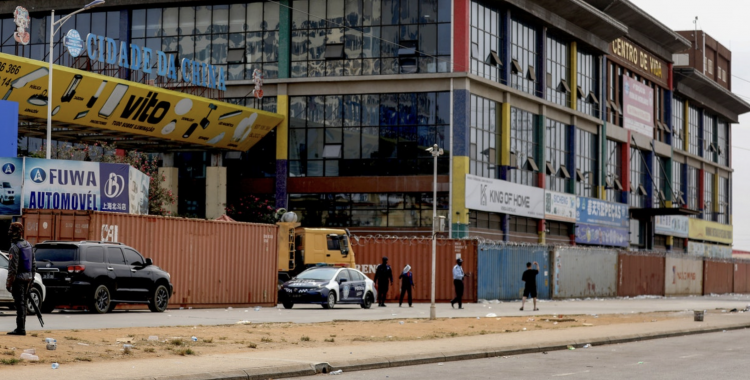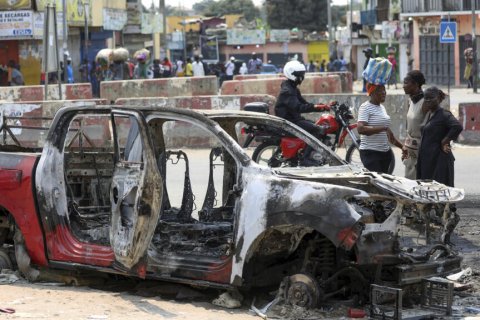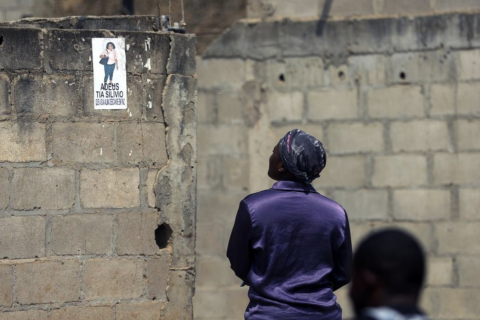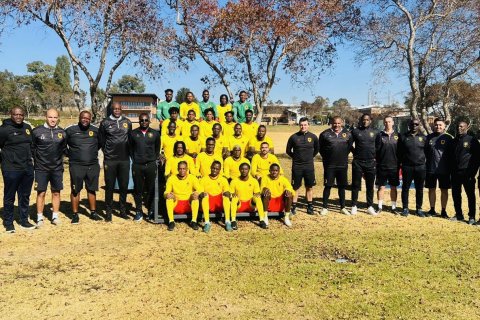Traffic remains light on the capital's main roads, where armored vehicles from the Rapid Intervention Police and Angolan Armed Forces personnel are visible, deployed to prevent further disturbances.
The few gas stations still in operation are heavily guarded by police officers, and lines are already forming, a sign of a cautious return to normalcy.
China City, one of Luanda's largest shopping centers, has barricaded itself with containers and barbed wire and reinforced security, including police patrols, to deter attempted break-ins—some of which were called for via social media.
In a statement to Lusa, Helena Xiang, director of China City, explained that, because of the vandalism, it was necessary to take action to protect shopkeepers and their property.
"That's why we had to close. With the support of the National Police, we're now confident that the situation will be controlled," she said, referring to the gigantic shopping area with 400 stores that generates around 10,000 direct and indirect jobs.
The main impact of the strike is "not being able to do business and the store owners are suffering losses," she added, assuring that employees' salaries will not be affected because "it's a special case."
Marcelina Joaquim Germano, an employee at PEP — a popular clothing and home goods chain — experienced moments of terror on Monday when the store in Calemba 2 was raided: "We felt like hostages, locked in the bathroom for an hour."
"It was around 9 am when we started to feel the commotion and saw the crowd growing. A woman said it was best to close and go home because there was a group vandalizing and causing damage. We followed their advice and closed the door," she told Lusa.
But they didn't make it in time. The crowd broke the windows, and the employees took off their uniforms and tried to escape, eventually locking themselves in the bathroom.
The looters, carrying knives, bottles, and sticks, let the workers out, but Marcelina remains frightened.
"I only just managed to leave the house to go to the square," she said.
As for the store, "it's gone. Everything was stolen; it's a total loss."
And Marcelina asks herself: "What are we going to do? We have a child, we have a husband, what are we going to do?", saying she didn't expect these to be the consequences of the strike, despite expressing solidarity with the causes, as she laments the impact of the new taxi fares on citizens' already low incomes.
Arreiou, a low-cost chain with a strong presence in peripheral neighborhoods, was also among the most affected. According to an official company source, of the 200 stores the group — owned by Refriango — has in Luanda province, more than 70 have been the target of break-ins, looting, or vandalism since Monday.
"With the highest incidence in Cazenga, Viana, Kilamba, Camama, and Talatona, where Arreiou has a close and constant presence in the communities," she added.
With most stores scheduled to reopen tomorrow, Arreiou will gradually reopen those that suffered damage, "as safety and operating conditions are restored."
The chain, which employs over a thousand people directly among approximately 4000 employees, has also reinforced security measures, emphasizing that the "National Police have been a constant and essential partner in stabilizing the situation, which is currently under control."
The president of the West African Traders Association, Mohamede Saidou Toucara, said that there is no exact number of canteens looted in Luanda, noting that he himself had a warehouse vandalized in the Calemba II area.
When asked about the damage he suffered, Mohamede Toucara replied: "It's a lot, really, a lot of material," adding that some business owners from Mauritania were also affected.
In Angola, these traders run small businesses, including the popular convenience stores, known locally as "Mamadus canteens," a reference to their Muslim beliefs.
The Deskontão hypermarket chain is also keeping three of its stores closed "for security reasons, as they are located in outlying areas."
Images of attacks on other chains, such as Angomart, owned by the Indian Noble Group, have also circulated on social media.
To date, authorities have reported 66 stores vandalized and urged anyone who has seen their property damaged to report the incident to police stations.







